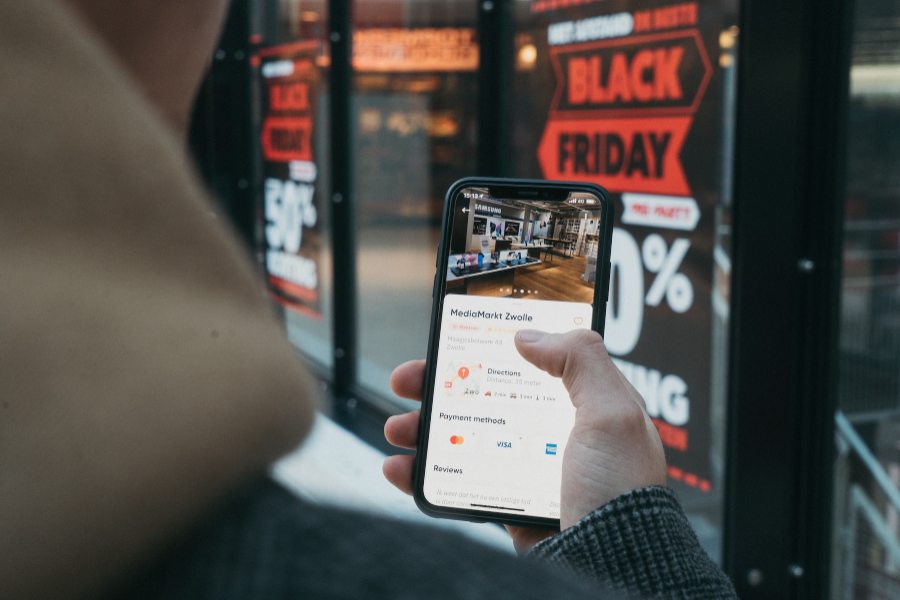Ecommerce is more than just a buy button that needs to be optimized in order to convert leads into customers. A digital transformation is a more global change focused on the shift from technical solution ownership to user empowerment. It should be a unified brand initiative, with the question “what does the future 360° digital journey experience look like for our customer?” at the forefront. Only in this case, technological solutions can power those journeys.
It often happens that companies are unable to meet their digital marketing and ecommerce objectives. And this is where modern technology comes into play and offers a solution to fit that limited scope. Composable commerce is a solution for enabling the empowerment shift. Let’s look into the transformative effects of composable solutions that you should be aware of.
Business Benefits Of Composable Commerce
Many technical leaders give the green light to a coamposable commerce architecture and rebuild their solutions accordingly. Thus, CIOs/CTOs, VP/SVP, Senior Manager in the United States, United Kingdom, and Germany admit the future of commerce architecture, with 19% of companies already moving away from monolithic architecture and 79% planning to increase investment in headless over the next 12 months.
However, less than half of those same executives were happy with their capacity to bring rapid improvements to the customer experience. This is the key to leveraging composable commerce to ensure that your firm is prepared to pivot in order to keep up with the volatility of modern commerce and consumers’ constantly changing digital experience needs. Over the last two years, about $1.65 billion in financing has been obtained for headless technology. And this is just the beginning, taking into account the pack of business benefits the solution delivers.
#1 — Agility and Flexibility
Composable commerce enables businesses to quickly adapt to changing market conditions and customer demands. With modular components, companies can easily add or replace features, integrations, or services without undergoing a complete website overhaul. This agility helps organizations to remain competitive and responsive in a fast-paced digital landscape.
#2 — Personalization and Customer Experience
Companies can provide personalized customer experiences when arming themselves with composable commerce solutions. With knowledge about user personas, their interests, and habits, they can customize user journeys, sell target products, and give relevant information to each consumer. AI-driven recommendations, customer data platforms, and content management systems will come in handy.
#3 — Speed to Market
When using traditional monolithic e-commerce platforms, you should be aware that they have long development cycles. However, this is not the case with composable commerce. By using pre-built components, APIs, and third-party interfaces, enterprises may decrease time-to-market to the minimum. This enables faster innovation, product releases, and updates.
#4 — Scalability
By employing pre-built components and cloud-based services, composable commerce may reduce development and operational costs. It will no longer be necessary to start from scratch. With composable commerce, you may better spend resources and focus on developing distinct characteristics that set your business apart from competitors.
#5 — Cost Efficiency
Composable commerce may minimize development and operations expenses by utilizing pre-built components and cloud-based services. Instead of beginning from scratch, businesses may better allocate resources and concentrate on creating unique qualities that set them apart from rivals.
#6 — Integration and Interoperability
Composable commerce embraces the concept of connecting diverse systems and services using APIs. Integration with third-party tools, payment gateways, analytics platforms, and marketing automation systems is therefore simplified. As a result, you have all key information in one place, can access it with ease, and work with it more effectively.
#7 — Data-Driven Insights
It is way easier to collect and analyze data from many touch points throughout the consumer journey with composable commerce. Everything is stored in a single spot. So all you need to do is to check the data. You can then use it to impact strategic choices, marketing initiatives, and product development activities.
Bring Your Business To The Whole New Level!
It is easy to bring e-commerce to a whole new level with modern technology? Consider implementing composable commerce solutions — they will open a lot of opportunities to grow and scale better. You can stay competitive in the ever-changing digital world while providing tailored and engaging experiences to your consumers. This will undoubtedly improve your performance and deliverables!








